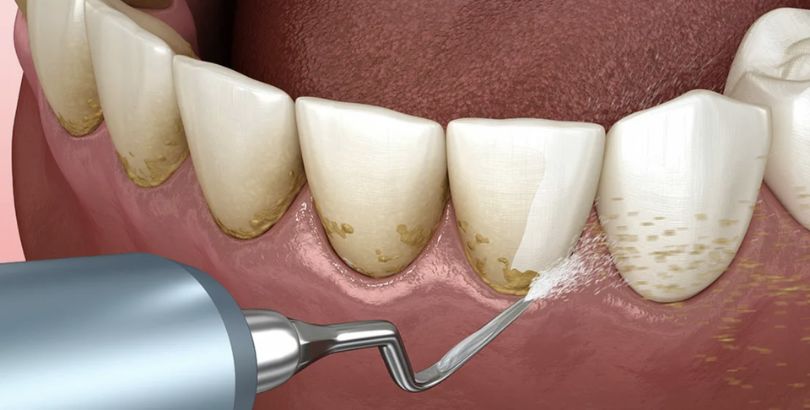How Often Should You Have a Dental Teeth Cleaning?
Professional teeth cleaning aims to control tooth decay and gum disease. Dentists and dental hygienists conduct this procedure at the dentist’s office, typically with a thorough dental examination. It is crucial to have regular dental cleanings to uphold oral health and prevent dental issues. But how frequently should you have professional teeth cleanings? Let’s delve into this question and understand the significance of these appointments.

What is a Dental Teeth Cleaning?
A dental teeth cleaning, also known as professional cleaning, is a procedure where a dentist or dental hygienist removes plaque, tartar, and stains from your teeth. This process helps prevent tooth decay, gum disease, and other oral health problems.
The General Rule: Every 6 Months
Most dentists recommend getting professional teeth cleaning every six months. This twice-a-year schedule works for most people because it keeps plaque and tartar buildup under control, reduces the risk of gum disease, and lets the dentist spot any possible issues early on.
Why Regular Cleanings Matter
- Prevents Tooth Decay: Plaque and tartar can lead to cavities. Regular cleanings remove these harmful substances.
- Fights Gum Disease: Gum disease starts with plaque buildup. Professional cleaning helps keep your gums healthy.
- Keeps Your Breath Fresh: Clean teeth mean fresher breath. Dental cleanings remove bacteria that can lead to bad breath.
- Brightens Your Smile: Cleanings remove stains, leaving your teeth looking brighter and shinier.
- Detects Problems Early: Your dentist can spot early signs of oral health issues, like cavities or gum disease, and address them before they become serious.
When You Might Need More Frequent Cleanings
Some people may need their teeth cleaned more often than every six months. If you have certain conditions or habits, your dentist may recommend a cleaning every 3-4 months. These include:
- Gum Disease: People with gum disease (periodontitis) often need more frequent cleanings to keep the condition under control.
- Smoking: Smoking can cause tartar buildup and stains, which may require more cleaning to maintain healthy teeth and gums.
- Diabetes: People with diabetes are more inclined to gum infections, so frequent cleanings may help manage their oral health.
- Cavities: If you get cavities often, more frequent cleanings can help prevent further tooth decay.
What Happens During a Teeth Cleaning?
During a teeth cleaning, the dentist or hygienist will:
- Remove Plaque and Tartar: They will use special tools to remove plaque and hardened tartar from your teeth, especially around the gumline.
- Polish Your Teeth: After cleaning, they will polish your teeth with a gritty toothpaste to remove surface stains and smooth your teeth.
- Flossing: They will floss your teeth to remove any remaining debris between your teeth.
- Rinse and Fluoride Treatment: Lastly, they may rinse your mouth and apply fluoride treatment to strengthen your teeth.
What Happens If You Skip Regular Cleanings?
Skipping regular cleanings can lead to several problems:
- Cavities: Plaque left on teeth for too long can cause tooth decay.
- Gum Disease: Without regular cleanings, gum disease can develop and worsen over time.
- Bad Breath: Not cleaning your teeth properly allows bacteria to grow, leading to bad breath.
- Stained Teeth: Plaque and tartar buildup can cause yellow or brown stains, making your teeth look hideous.
To keep your smile bright and healthy, it’s necessary to have your teeth professionally cleaned every six months. Your dentist may suggest more frequent cleanings if you have specific oral health concerns, like gum disease or frequent cavities. Remember, regular cleanings help keep your teeth and gums healthy and allow your dentist to catch any issues early. For professional teeth cleaning in Gangapur road, Nashik, then visit the Dental Design dental clinic for a personalized and comfortable experience.



